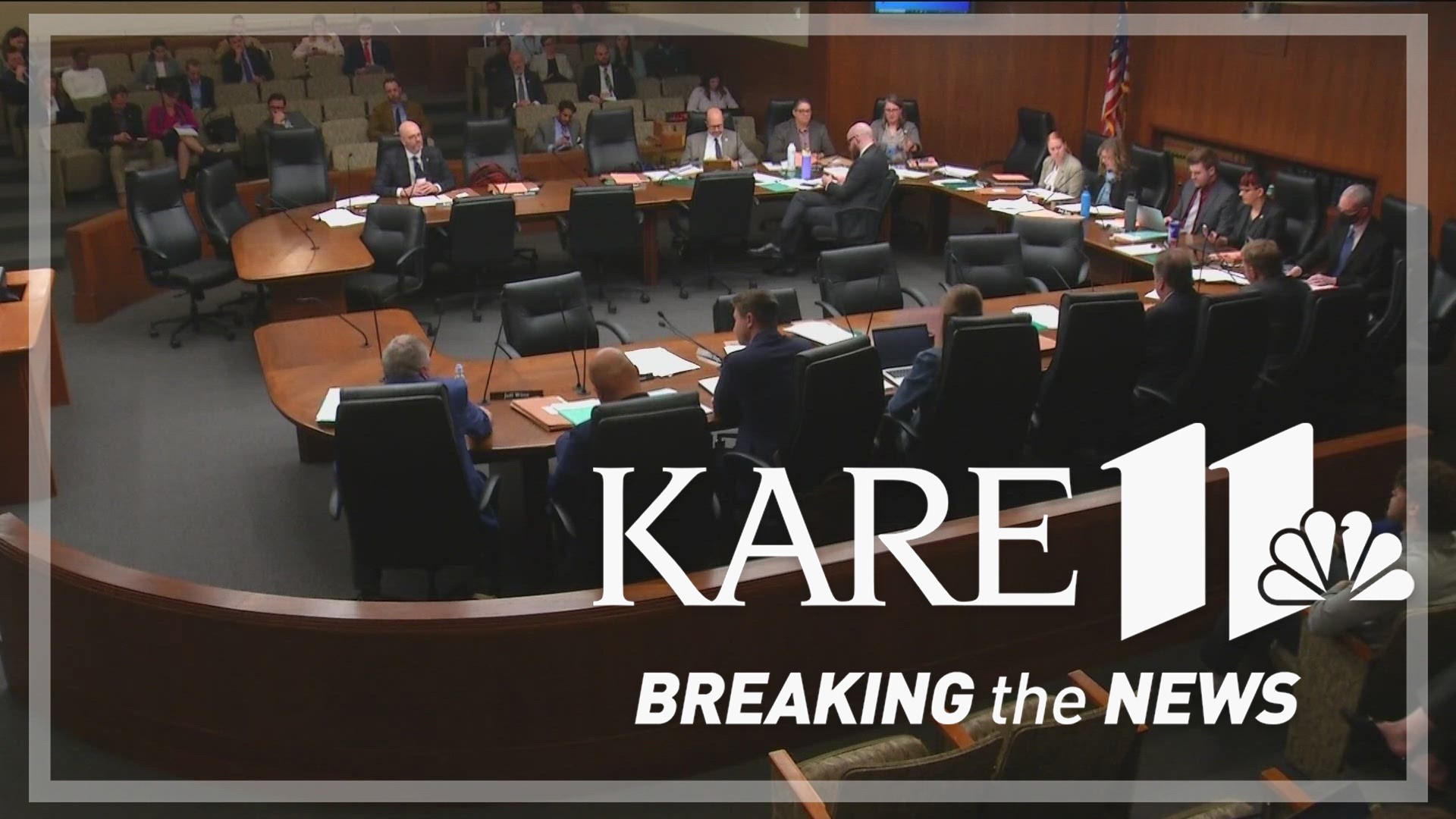ST PAUL, Minn. — There's growing momentum at the State Capitol for the SRO Reasonable Use of Force bill, also known as the "SRO Fix" bill. It cleared a big hurdle Thursday when it passed the House Public Safety Committee on a unanimous voice vote.
The legislation is designed to clarify the roles of school resource officers and what level of force they can use when responding to incidents on campus. Republican members of the panel threw their support behind the bill after it was amended in response to issues raised by law enforcement organizations.
"I'm excited to get our SROs back into school," Rep. Jeff Witte, a Lakeville Republican and former SRO officer, told his colleagues on the Public Safety Committee Thursday.
"I appreciate working with you guys, in bringing our other stakeholders because that's what was missing the last time in this process. So, thank you guys for all your hard work!"
The bill makes it clear that school resource officers can use the same reasonable level of force inside a school as they do on the street. Teachers and other staff will be barred from placing children in prone restraints that restrict their breathing, but SROs will still be allowed to use those holds briefly if necessary to protect others from harm.
"I understand why this conversation has been so passionate, why stakeholders have been so engaged in this," Rep. Cedrick Frazier, a New Hope Democrat and lead author of the SRO Bill, told fellow lawmakers.
"We're coming off a tragic situation when we had the murder of George Floyd, and that vision still resonates with folks. But I also believe that out of what happened there we have made some changes and we're making strides to be a better Minnesota for everyone in Minnesota."
Rep. Frazier's bill creates statewide standards and a minimum level of training for SROs, and a set of expectations laid out in the form of a model policy. The bill calls for the POST Board -- Peace Officer Standards and Training Board -- to create the final version of that policy after having at least three meetings with groups that will be affected by the new policy.
"By doing that we create transparency, but we also created a mechanism for accountability if we need that," Frazier explained.
"We'll be collecting data now that we didn't collect before, so we can fully answer the question if there's an issue. We'll have data to back that up in regards to how force is being used in our schools."
House Speaker Melissa Hortman told reporters Thursday the bill will have its final committee hearing next Monday and will probably be put to a floor vote in the House on Monday, March 4.
The Senate's version of the SRO bill is also winding through committees but has yet to receive any support from GOP members. They object to the idea of the POST Board making the final version of the model policy. They also assert it would be simpler just to repeal the changes that were in last year's omnibus education bill.
Republicans and law enforcement groups complained last summer they were blindsided by changes to rules for SROs that were included in a sweeping education policy and finance bill. Dozens of law enforcement agencies pulled their officers out of schools at the start of the 2023-2024 school year because they felt the new law left SROs liable for lawsuits and criminal charges for using prone restraints on children.
Attorney General Keith Ellison issued an opinion last fall seeking to reassure police departments that they were still permitted to use reasonable force even with the new changes to the rules on prone restraints. That prompted some law enforcement agencies to send their officers back into schools, but they still asked for plain language from the legislature that could only be interpreted one way by the courts.
The Solutions Not Suspensions Coalition lobbied against changing the rules for SROs, asserting prone restraints are disproportionately deployed against BIPOC students and children on the autism spectrum or with cognitive impairments.
That racial inequity issue created a divide among Democrats, many of whom pushed back against the notion that SROs are in jeopardy of being sued or charged with crimes if they continue their past use of force protocols.
The lack of data on the number of incidents in which police are required to use physical force in schools has been used by both sides.
Republicans have argued the changes made in 2023 were completely unwarranted because use of prone restraints are rarely if ever used. Democrats have said there's no way to get a handle on the scope of the problem if police departments and schools aren't required to report use of force against students.

